- Home
- P. C. Cast
Moon Chosen Page 7
Moon Chosen Read online
Page 7
Nik and the Carver seemed not to have heard him.
“You’re missing the point. I didn’t mean that you and Paladin lack worth,” Nik said, sounding more frustrated than contrite. “I just mean that I care about what is best for the Tribe.”
“Your father’s Laru is the second canine that chose him,” the Carver said.
“Carver, everyone in the Tribe knows that,” Nik said.
“And how old was your father when Laru chose him?”
Nik frowned, realizing what the old man was getting at. “He had seen forty-seven winters when Laru chose him. Everyone in the Tribe knows that, too.”
“True, and even though I am an old man with failing health, I can easily remember back seven years to Laru’s choosing of your father. You rejoiced then with the rest of the tribe, did you not?”
“I did, but that was different. Sol was our Sun Priest then, and he’s still our Sun Priest. The Tribe needs him, and there’s no reason for him to retire unless—” Nik broke off, realizing what the old man was baiting him into admitting.
“Go ahead. Continue. Unless what?”
Nik drew a deep breath. He would not let this sick old man get him to admit aloud what the entire Tribe gossiped about—that the only child of their beloved Sol, who had been groomed to become Sun Priest after his father, and who almost everyone thought should be Sun Priest when his father retired, could not be considered for that Leader position because he had not been chosen Companion by a Shepherd. He had not been chosen Companion by any canine. And so the Tribe and Nik waited—perhaps for Nik to be chosen—perhaps for another to be groomed by Sol to take his place. But instead of voicing his shame, Nik said shortly, “All I was saying was that Father has many years left to him before his successor, whoever that might be, will enable him to retire from his Leader duties. Maybe you’re right, though, sir. Maybe I shouldn’t be so quick to judge Maeve because of her age.” Nik shrugged his shoulders nonchalantly, as if dismissing the subject.
“You can’t fault Nik for believing that his father is unusually strong for a man of his years,” O’Bryan said, as always supporting his cousin. “We all want to believe that about our fathers, and in this case Nik is right!” O’Bryan grinned.
The Carver was studying Nik as if O’Bryan had not spoken. “Remind me, son of Sol, how many winters have you known?”
Nik narrowed his eyes at the old man, wondering about this sudden change of subject. He should, perhaps, pity the Carver. His gaze returned to the man’s wounded leg. Maybe his mind was beginning to fail along with his health. “I have known twenty-three winters, sir,” he said, making an effort at sounding respectful.
“And remind me, what age are the great majority of Companions when they are chosen by a canine?”
Nik felt as if the old man had punched him in the gut, but he made sure his answer was no more than an emotionless retelling of that which all of the Tribe of the Trees knew. “Most canines choose Companions who have known eighteen to twenty-one winters.”
“Indeed. Indeed they do.” The old man’s sharp gaze skewered Nik. “And you, the son of the Tribe’s Sun Priest, Sol, Companion of the sire of the Tribe’s last six Shepherd litters, have passed twenty-three winters without being chosen.”
“No one knows why canines make their choices,” Nik said, hating that he couldn’t stop himself from sounding defensive and desperate.
“True, we do not know why canines make their choices, but we do know why they do not.”
“Not always!” Nik tried hard to control his anger. “My mother was the most talented artist of the Tribe. She was beautiful and smart and loved by all, and she was never made a Companion.”
“Ah, but did it eat at her spirit as it eats at yours?”
“You were her favorite teacher. You know the answer to that question as well as I do, Carver. Were my mother here she would say the asking of it was unworthy of you.”
“I have no doubt that she would. I also have no doubt that she would have words for you as well, Nikolas. Words that you might not want to hear.” As if their exchange had wearied him, the old man deflated back on his chair, slowly stroking the Terrier, who stiffly climbed onto his lap. “Ignore this old man’s musings, the both of you. Nikolas, you are free to join the Tribe in celebration.”
“Nik, let’s go! The sun has almost set. We’re going to miss the last of the rays, and there’ll be a celebration tonight. It’s going to be ridiculously crowded. We need to get to the Gathering before the best perches are taken.” O’Bryan bowed his head to the Carver. “Sir, do you need help to make it to the Gathering?”
“No, son. Paladin is all the help I need. We shall follow you—slow and steady, slow and steady.” His sharp gaze went to Nik. “Nikolas, I need not see you on the morrow.”
Nik frowned and his hand went to the crossbow he had been carving, tracing the intricate design he had begun. “Sir, the stock isn’t finished.”
“The stock will wait.”
“Should I return the day after tomorrow?”
“Perhaps. Perhaps not. Wait for my call. When I believe you are ready to resume your training I will send Paladin for you,” said the old man.
Nik felt his cheeks grow warm. Did the Carver think to punish him for speaking his mind? “You expect me to just wait for your call? Like I am a novice in training and not a skilled artisan?”
“I expect you to do as you are told, Nikolas. And no one would dare to question your skill as an artisan—it is indeed as vast as your skill as a bowman. It is only your skill as a human being that I dispute. Perhaps with a break from your carving duties you will discover a way to apprentice more successfully for your humanity.”
Nik felt his hands fist in impotent fury. If the Carver wasn’t four times his age and half dead already Nik would make him regret his harsh words.
“Cuz, it is past time for us to go,” O’Bryan prodded.
“You’re right, cousin,” Nik said, turning his back to the old man and his gray-muzzled Terrier. “I’m more than ready to go.”
* * *
The familiar excitement that filled the Tribe after a choosing was bittersweet for Nik. It was hard not to be caught up in the celebration. Another Companion had been made. A Leader had been chosen, demonstrating once again that the Tribe continued to thrive. Five Shepherds had been whelped and all five had survived to be weaned and grow to almost six months of age. And now four of the five had chosen Companions. Nik’s father’s Laru was siring strong, intelligent canines—a sure sign that the Sun was blessing the Tribe of the Trees. That made Nik feel secure in the strength of his people. And yet Nik was heading into his twenty-fourth winter and no pup—Leader or Hunter—had so much as given him a glance during a choosing.
“The old man was right.”
“Huh?” O’Bryan called from over the laughter and music of the Tribe’s celebration. He lifted the wooden pitcher from a convenient niched fork of branches in the massive pine. “Ready for more beer?”
“Sure, why not?” Nik held out his barely touched beer mug to his cousin.
O’Bryan grabbed a jutting branch and pulled the little hammock-like swing toward his cousin, topping off his mug with frothy, yeasty spring beer. “Don’t let what the Master Carver said get to you. You know he’s not well.”
Nik looked away from his cousin’s kind gaze and repeated, “The old man was right. It’s winters past when I should have been made a Companion. There’s something wrong with me.”
“That’s beetle shit and you know it. There’s nothing wrong with you.”
“Then why haven’t I been chosen? An old woman gets a second chance,” Nik thrust his chin in the direction of the group of the jubilant people who surrounded Maeve and Fortina in their place of honor near his father. “And I sit here with my dick in my hand.”
O’Bryan grinned. “So that’s a dick. And all this time I thought you were holding a mug in your hand. No wonder I can’t get one of those pretty maids to take me seriously.”
“I’m not joking,” Nik said, scowling.
“Cuz, did you ever think that you haven’t been chosen yet because the perfect Companion for you hasn’t been born yet?”
Nik opened his mouth to respond, but his words were stopped by the sight of the big male pup trotting through the Tribe, making his way confidently to where his littermate was cozied beside Maeve. He touched noses with Fortina, and then affectionately licked Maeve’s offered hand before settling next to his littermate. He put his nose on his paws and yawned. Then, before he closed his eyes, the male gazed across the Gathering platform, unerringly finding Nik. The pup’s unique amber eyes met Nik’s. Nik stopped breathing. The pup held his gaze, and held it, and then held it even longer. Slowly, the pup closed his eyes and slept.
Nik gulped air.
“He’s a fine-looking young canine,” O’Bryan said.
Not able to find his voice, Nik nodded.
“I heard your father talking to one of the Guardians. He said this pup is even bigger and stronger than Laru was at his age. He said that he expects him to choose a Companion who is going to be a great Leader.”
Nik took a drink of his beer and wiped the foam off his mouth with the back of his hand, saying, “I’ve heard him say the same.”
“Nik, the pup doesn’t have a Companion yet. He’s almost six months old. He must choose soon. Maybe he will choose you,” O’Bryan spoke softly but earnestly, his words for Nik’s ears alone.
Nik choked out a sound somewhere between a laugh and a sob and started to say, I would give anything—anything at all if he would choose me, when there was a roll of drumbeats, like the pounding of an excited heart.
The crowd that was perched around the drawbridge to the platform parted, and with a swirl of her rabbit pelt cloak, the Storyteller made her way to stand before Sol and Maeve. By her side padded her Companion, a tall, black-faced Shepherd whose chest and neck were so massively muscled that the Tribe had nicknamed him Bear—a nickname that had stuck so firmly that not even the Storyteller called him by any other. The woman and canine stopped before the Place of Honor, nodding respectfully to Nik’s father.
“It is a blessed day, Sun Priest.” Even speaking this simple sentence, the Storyteller’s voice was spectacular. It carried easily across the platform, up and out into the protective canopy of the mammoth pines, spreading like winter fog to fill each hollow, pod, and nest.
Sol smiled warmly. “It is, indeed, Ralina. Do you have a new tale for us? That would be the perfect ending to this day’s blessings.”
“Perhaps. Perhaps not,” Ralina said. “You know the dictates of tradition, Sol. Tonight our newest Companion chooses my tale.” Her emerald gaze went to Maeve. “May the Sun bless your union with Fortina,” she said with uninhibited warmth.
“Thank you, Ralina. It has been an unexpected, but magickal day.” Maeve lovingly stroked the young canine sleeping by her side.
“So, tell me my dear friend, which tale would you have me tell?”
With no hesitation Maeve said, “The Tale of Endings and Beginnings.”
There was a pleased murmur through the Tribe that reminded Nik of the sound of pine needles rustling in the wind, but he couldn’t stifle a moan.
“What?” O’Bryan whispered.
“That old tale again. Why didn’t she chose the new tale we all know Ralina’s been working on?”
O’Bryan shrugged. “Maeve’s all about tradition. And it’s an old tale, but a good one.” He muffled a burp before pouring himself another mug of the rich beer. “When you get chosen—”
O’Bryan’s whispered support ended mid-sentence when Ralina took her place before the largest of the metal braziers that formed a semicircle around the Mother Trees and their precious cargo, the Mother Plants. The Tribe went silent with hushed expectation. With a dramatic flourish, Ralina threw off her cloak and the confined fires suddenly blazed high, changing from the yellow flames of the sun to a mystical green-blue. As one, the Tribe sighed in appreciation of the Storyteller’s loveliness. Under the cloak Ralina wore a simple knit shift that had been dyed a golden yellow to match the rich fall of her hair. Every inch of the shift was lovingly decorated with a rainbow of beads and mirrors and shells, so that as Ralina spoke her tale was set to a score created by the music of her graceful movements.
Even Nik, who knew every word of the familiar tale, couldn’t look away from the spell the Storyteller began to weave.
“And so it shall be the Tale of Endings and Beginnings.” Ralina gestured with her words, causing the fringe that cascaded from her sleeves to flutter beautifully. “Once upon a time, the world was much smaller than it is today. People covered the surface of our green earth, choking out the trees with cities of stone and metal and glass, and filling up the spaces in between with labyrinths of concrete over which they traveled. These labyrinths did not grow, did not breathe, did not live.”
While Ralina told the beginning of her tale, she moved liquidly to stroke the bark of the nearest pine. “The trees were lost, unnurtured, unprotected. The people did not know they breathed and did not care that they struggled to grow. The people believed in only one thing—nurtured only one thing—protected only one thing—a dead, deceptive thing called technology.” Ralina whirled with sure, quick steps, moving across the platform, saying, “The world continued to turn. Winters were seen and easily survived. People lived for the dead, deceptive thing, secure in their dominion over all.” Ralina stopped spinning, once more at her place before the centermost brazier. Her lowered eyes lifted and she cast her gaze to the east as if she could look through the verdant canopy of ancient pines and see the distant, dark horizon. “But the people could not hold dominion over the Sun!”
“The Sun!” the Tribe echoed Ralina’s words.
The Storyteller smiled and her hands once more began to move in a slow, graceful pattern around her.
“It began gradually. Our Sun belched displeasure, warning the people and sending rays of power to disrupt the things that fueled technology. Far above the earth, though not as far above it as the Sun, the rays of power first destroyed the orbiting things that were man-made. Did the people heed the Sun’s warning?”
“No!” the Tribe responded as one.
“No, they did not,” Ralina agreed. “Then the Sun, ever vigilant, spat more rays of power at the people, and the thing called electricity was burned away. Did the people heed the Sun’s warning?”
“No!” the Tribe intoned.
Ralina’s voice dropped and deepened until, eerily, she sounded as if the tale possessed her and was now telling itself. “So then the Sun belched its power at the people, over and over again—day after terrible day—until all was destroyed. All! That which fueled technology, and the technology itself. In a beautiful, fiery blaze—all that was dead and deceptive burned and burned and burned.” The power of the Storyteller’s voice echoed through the silent Tribe. She spread her arms wide. “But our Sun was not sated yet, because the people still did not heed the warnings. As they raced to rebuild their dead and deceptive technology, our Sun sent one last warning, so bright—so hot—so filled with righteous power that it caused the very firmament above us and the earth below us to change.”
Ralina’s swaying movements stilled.
“The air became hot and thin. The people began to die. The animals began to die. As if in mourning for the dying world, the earth trembled. Much of the land disappeared into the ocean’s depths, hiding from the anger of the Sun in the cool waters, and taking the heedless people with it.”
The Storyteller bowed her head and her voice was filled with sadness.
“Cities became chaos. Chaos became death. From that death new danger was born. That which once was the smallest, the most insignificant of things—creatures that crawled and crept—simple beetles, diminutive spiders, irritating roaches—claimed dominion over people.”
As one the Tribe shuddered. Even Nik sent a quick glance over his shoulder, as if the Storyteller’s
voice could conjure a crawling thing from the night.
“The good and wondrous things of the world were dying, leaving only that which preyed on others—that which was the most base, the most sinister.” Ralina paused, and then her bare feet began slowly, gracefully, to tap out a pattern. One two three—one two three—tap tap tap. The shells and ancient coins that were wrapped in row after row around her ankles made music with her steps and her shift shimmered with new life in the light of the brazier. Her magickal voice turned lyrical, changing story to song.
“But before all could be death
all could be death,
from the ending came the beginning
came the beginning.
For not all of the people were deaf,
not all were deaf.
Some left the soulless cities,
the soulless cities.
And followed the promise of green,
of healing green,
To the forest they turned!
To the forest they turned!”
Ralina’s feet still tapped out a musical pattern, but her body stopped swaying and her voice changed again, becoming soft and sad.
“It was slow and painful for the people who had so recently only nurtured that which was dead and deceptive to learn a new way of life.” Ralina bowed her head. “In the beginning they tried to follow the old ways—to build their homes on the forest floor. And in daylight all seemed well. The trees helped the people breathe and shielded them from the anger of the Sun. But as the new world turned and learned, with each night new horrors grew, new horrors slew.
“First came the beetles—the bloody beetles—destroying with their jaws of blades. Next came the spiders—the hunting wolf spiders—trapping with webs like fisher nets. Finally came the roaches—the gnawing roaches—bodies swollen to tenfold in size they swarmed and covered all that remained on the forest floor after sunset, endlessly killing, endlessly craving.”
Ralina lifted her head. “But the people did not give up. Instead they finally, finally took to the trees!”

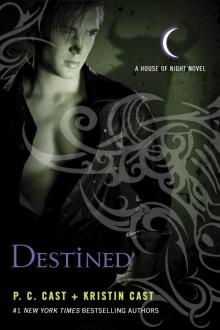 Destined
Destined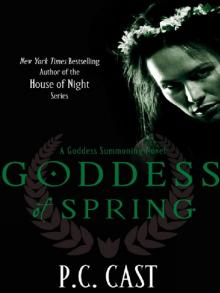 Goddess of Spring
Goddess of Spring Eternal: More Love Stories with Bite
Eternal: More Love Stories with Bite Marked
Marked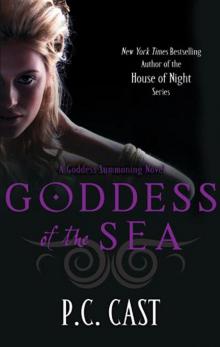 Goddess of the Sea
Goddess of the Sea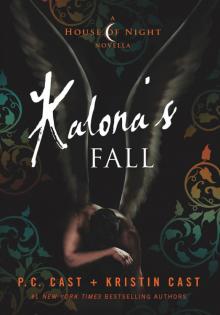 Kalona's Fall
Kalona's Fall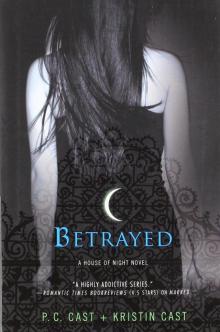 Betrayed
Betrayed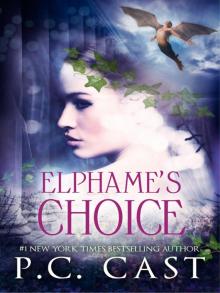 Elphames Choice
Elphames Choice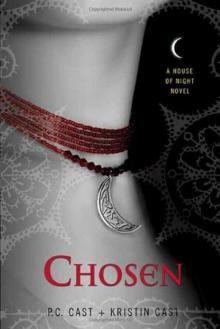 Chosen
Chosen Untamed
Untamed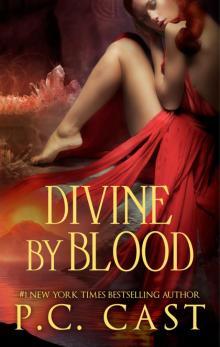 Divine by Blood
Divine by Blood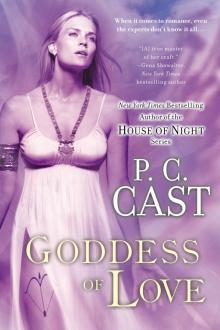 Goddess of Love
Goddess of Love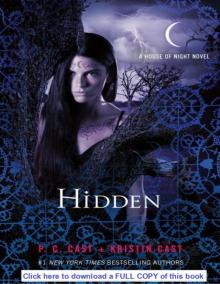 Hidden
Hidden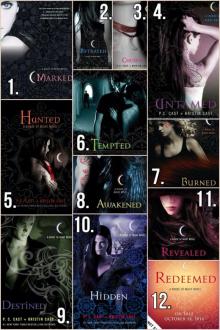 Burned
Burned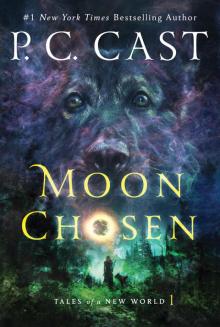 Moon Chosen
Moon Chosen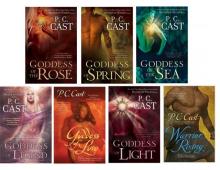 Goddess of the Rose
Goddess of the Rose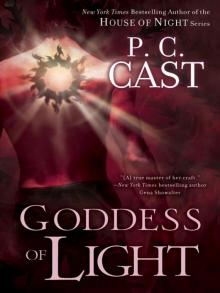 Goddess of Light
Goddess of Light Mysteria Nights
Mysteria Nights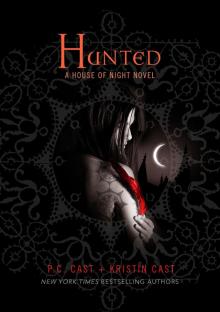 Hunted
Hunted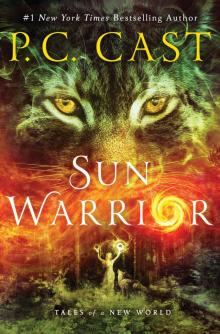 Sun Warrior
Sun Warrior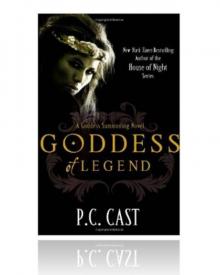 Goddess of Legend
Goddess of Legend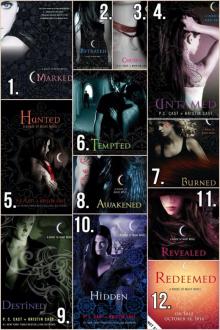 Tempted
Tempted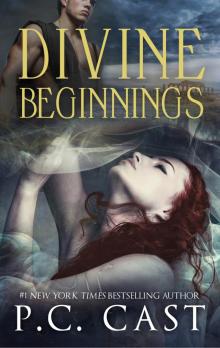 Divine Beginnings
Divine Beginnings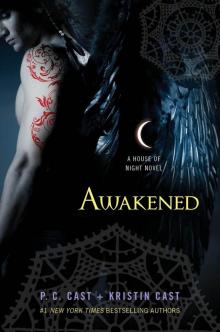 Awakened
Awakened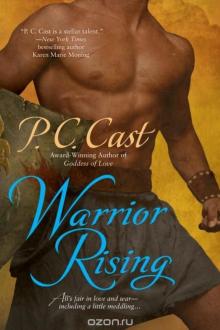 Warrior Rising
Warrior Rising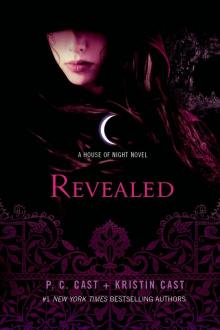 Revealed
Revealed After Moonrise
After Moonrise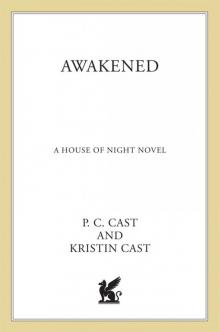 Awakened: A House of Night Novel
Awakened: A House of Night Novel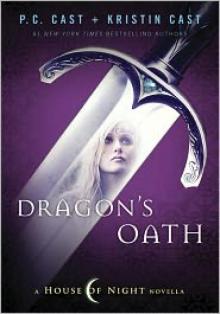 Dragon's Oath
Dragon's Oath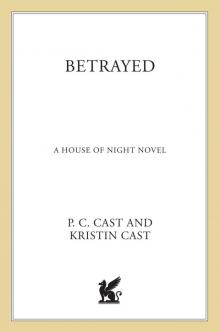 Betrayed (House of Night, Book 2): A House of Night Novel
Betrayed (House of Night, Book 2): A House of Night Novel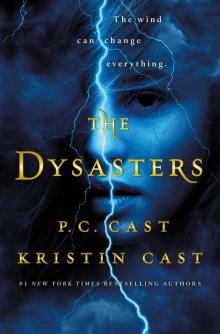 The Dysasters
The Dysasters Found
Found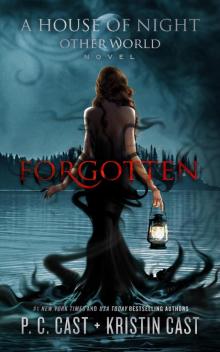 Forgotten
Forgotten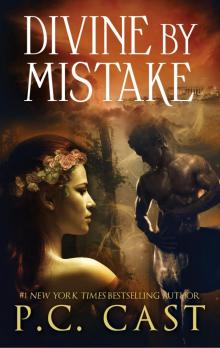 Divine by Mistake
Divine by Mistake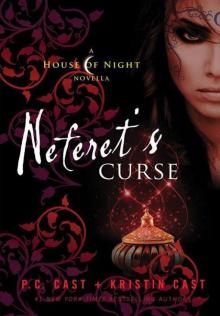 Neferet's Curse
Neferet's Curse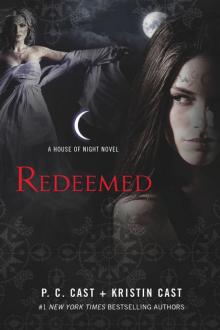 Redeemed: A House of Night Novel
Redeemed: A House of Night Novel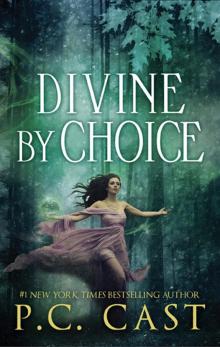 Divine by Choice
Divine by Choice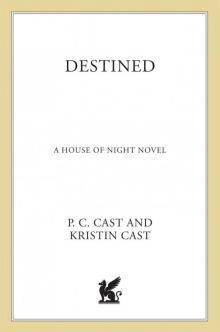 Destined (House of Night Book 9)
Destined (House of Night Book 9) Lenobia's Vow
Lenobia's Vow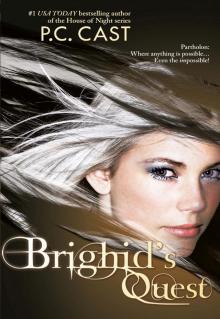 Brighid's Quest
Brighid's Quest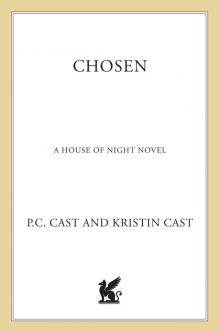 Chosen (House of Night, Book 3): A House of Night Novel
Chosen (House of Night, Book 3): A House of Night Novel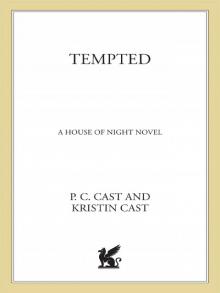 Tempted: A House of Night Novel
Tempted: A House of Night Novel Marked (House of Night, Book 1): A House of Night Novel
Marked (House of Night, Book 1): A House of Night Novel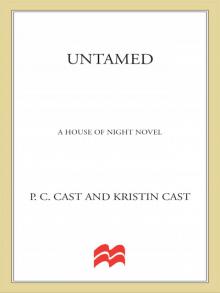 Untamed (House of Night, Book 4): A House of Night Novel
Untamed (House of Night, Book 4): A House of Night Novel Burned: A House of Night Novel
Burned: A House of Night Novel Lost
Lost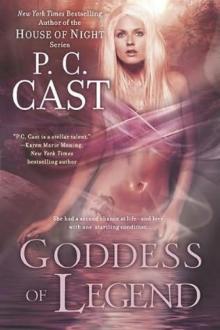 Goddess of Legend gs-7
Goddess of Legend gs-7 Revealed hon-11
Revealed hon-11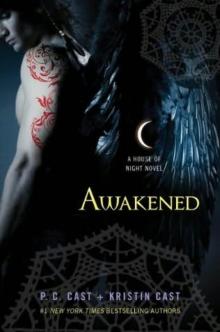 Awakened hon-8
Awakened hon-8 Tempted hon-6
Tempted hon-6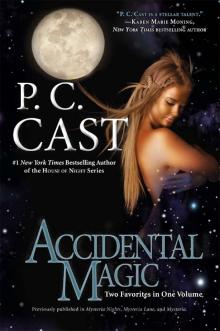 Accidental Magic
Accidental Magic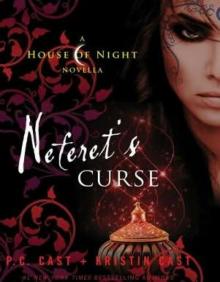 Neferet's Curse (house of night)
Neferet's Curse (house of night)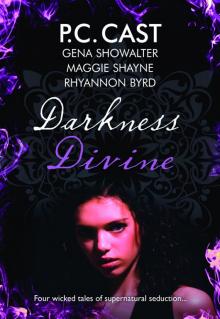 Darkness Divine
Darkness Divine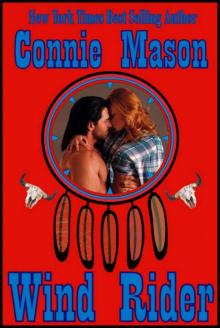 Wind Rider
Wind Rider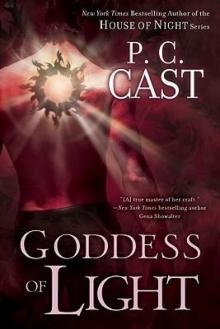 Goddess of Light gs-3
Goddess of Light gs-3 Kalona’s Fall
Kalona’s Fall Hunted hon-5
Hunted hon-5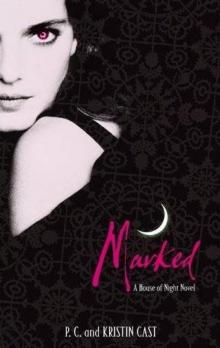 Marked hon-1
Marked hon-1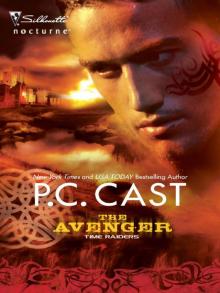 Time Raiders: The Avenger
Time Raiders: The Avenger Goddess of the Sea gs-1
Goddess of the Sea gs-1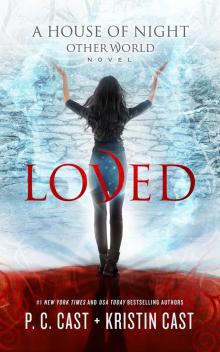 Loved
Loved Untamed hon-4
Untamed hon-4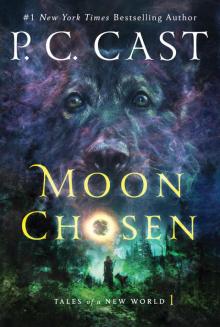 Moon Chosen--Tales of a New World
Moon Chosen--Tales of a New World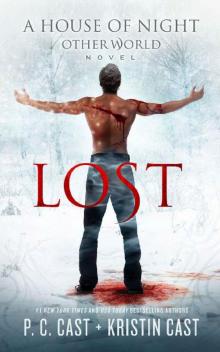 Lost (The House of Night Other World Series)
Lost (The House of Night Other World Series) Lenobia's Vow (house of night)
Lenobia's Vow (house of night)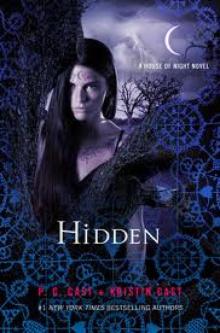 Hidden hon-10
Hidden hon-10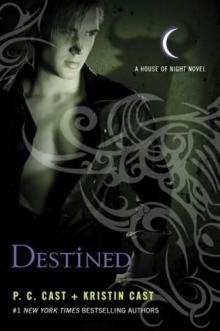 Destined hon-9
Destined hon-9 After Moonrise: PossessedHaunted
After Moonrise: PossessedHaunted